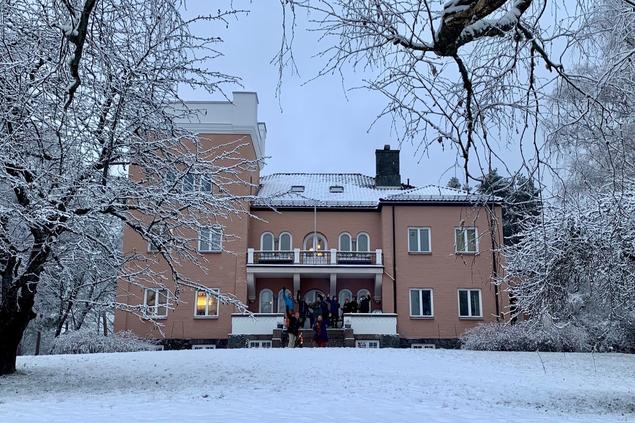FNI wins three new research grants on security studies

FNI has recently been accorded three research grants from the Norwegian Ministry of Defence’s support scheme for institutes and universities working in the field of security and defence studies. The projects are linked to Norway’s Arctic and security policies towards Russia, the USA and China.
Economic activity as an instrument in Russia’s Svalbard policy
Arild Moe is head investigator of a new project that will analyse Russia’s current and planned economic activities on Svalbard, in view of the Kremlin’s critical remarks and accusations against Norwegian policies there.
The main research questions are three: 1) do these economic activities reflect a coordinated attempt at strengthening the Russian presence on the archipelago, or are they merely a way of maintaining a financially acceptable basis for minimal presence there? 2) Are these Russian plans affected by Norwegian policies? 3) What role do Russian non-state actors play?
US Arctic security policy: Consequences for Norway
This project will be led by Andreas Østhagen. He and his team will studying shifts and changes in US Arctic policy, and how they relate to US security and defence engagement in the North Atlantic / European Arctic.
‘We will organize a seminar in Tromsø to discuss the links between Arctic geopolitics and local concerns’, he explains. Further, Østhagen will arrange a seminar in Washington DC in conjunction with his Fulbright research stay there and in Boston; in addition he will write an academic article on the topic and prepare a short policy brief for the Norwegian Ministry of Defence.
‘We hope to get a better understanding of why the USA appears to have shifted – at least rhetorically – in its Arctic security policy’, he adds. ‘We also hope to provide more context and deeper nuancing to the debate in Norway about the NATO/US military presence in the North and the consequences for Arctic cooperation.’
China’s Polar Silk Road: reality or vision?
The third project is led by sinologist Gørild Heggelund. In its 2018 Arctic Policy document, China explicitly expressed the desire to create a ‘Polar Silk Road’. This FNI new project will investigate the status and realism of the establishment of such a polar silk route, and what it could mean for Norway.
‘We will conduct a policy analysis of official Chinese documents and statements from key players involved, and hope to shed light on possible future plans and policies’, Heggelund explains.
‘There have been articles and news dispatches on this planned project in Western literature and media, but little that goes in depth or that draws on Chinese-language material. As the Polar Silk Road is mentioned in China’s 14th Five-Year Plan (2021–2025), it seems logical to expect a continued focus on this in the coming years.’
‘We want to contribute to a better understanding of what such an enterprise may entail and will also try to draw conclusions about the future development of this policy. For Norway, a potential increase of shipping and traffic in the Arctic can be of great importance, in terms of both security and the environment’, she concludes.
The Ministry of Defence’s support scheme for institutes and universities within security and defence studies supports free academic studies. The FNI is proud to be the recipient of three such grants.
